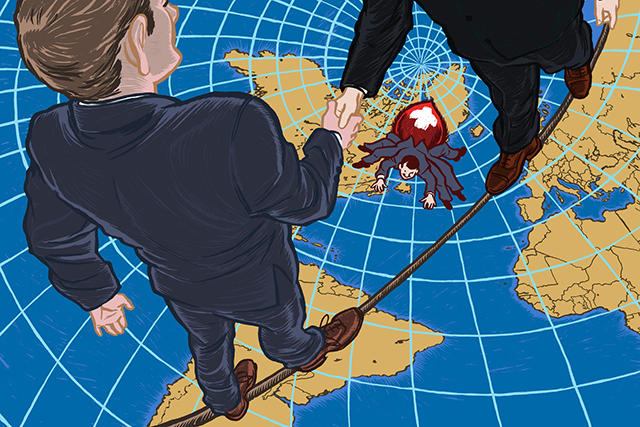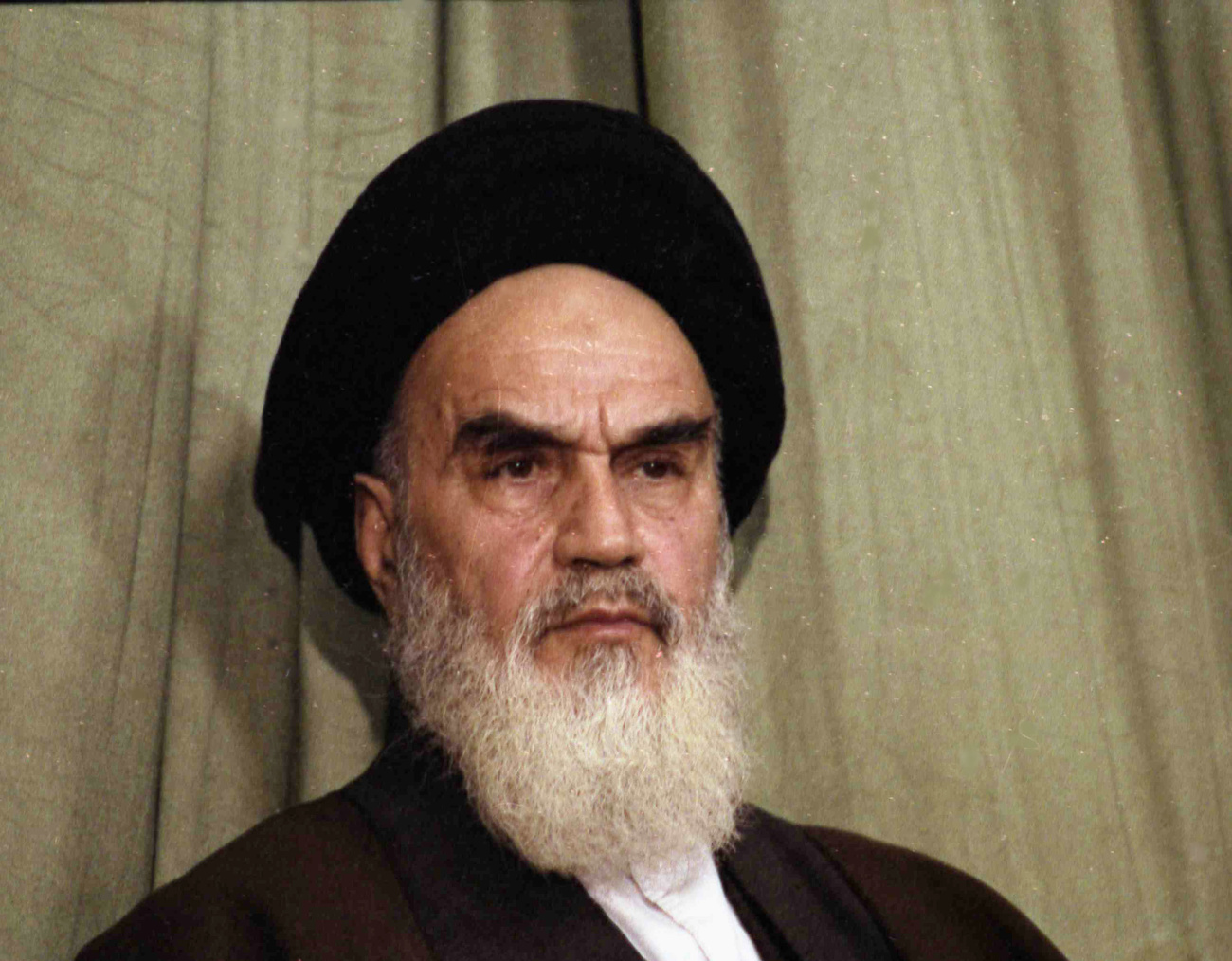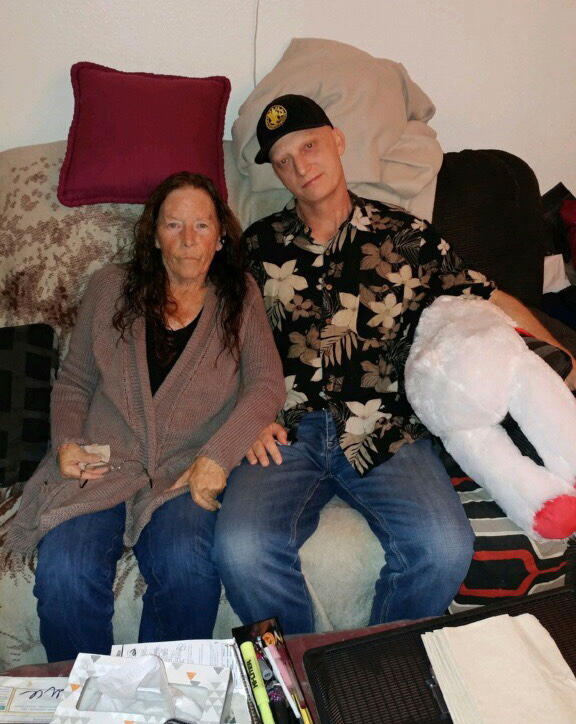Swiss humanitarian trade deal with Iran faces delay, questions

Swiss “good offices” between Tehran and Washington have brought about a humanitarian aid channel allowing Swiss-based companies to send medicines and other vital goods to Iran despite US sanctions. But it remains to be seen to what extent the now-delayed deal will help the Iranian people versus Swiss political and economic interests.
The channel, known as the “Swiss Humanitarian Trade Arrangement” (SHTA), was facilitated by Swiss “good offices” between the US and Iran. It comes amid the coronavirus pandemic, which has hit Iran particularly hard, and as Switzerland and Tehran mark 100 years of diplomatic ties.
Iran is seen by many countries as a sponsor of terrorism and a potential nuclear threat. United States-led sanctions since the Islamic revolution of 1979 have taken a severe toll on the economy and have recently been tightened under the Trump administration.
But whilst other countries have broken diplomatic ties, Switzerland has always had a policy to “talk to all countries”, as former Swiss State Secretary for Foreign Affairs Pascale Baeriswyl told swissinfo.ch last year. In addition, Switzerland represents the diplomatic interests of the US and Saudi Arabia in Iran, and of Iran in Saudi Arabia and Canada.
Switzerland opened its first diplomatic representation in Iran (then Persia) on August 1, 1920 and is marking the centenary with a series of events organised by the Swiss embassy in Tehran. Their aim, according to the Swiss foreign ministry, is to “underline Switzerland’s independence, to provide a platform for communicating Swiss efforts, and to involve Iran in global exchange”.
Events so far have included a Swiss film week at a Tehran cultural centre last November and an exhibition of documents from Iranian and Swiss archives “illustrating bilateral relations” launched in December but postponed and moved online because of Covid-19.
Initially planned to run from August 2019 to the end of July 2020, the programme is now being extended to September because of the pandemic. Further planned events include a conference on earth sciences, which the foreign ministry says will “highlight the role of Swiss geologists in the development of geology in Iran and in the discovery of oil fields”.
Humanitarian trade agreement
Swiss ties with Iran are maintained at the highest level. Iranian President Hassan Rouhani visited Bern in 2018 and in May 2020 Simonetta Sommaruga, who holds Switzerland’s rotating presidency this year, spoke with Rouhani on the phone.
“In view of the 100th anniversary of Switzerland’s diplomatic presence in Iran, we discussed bilateral affairs, the pandemic and our arrangement for exports of humanitarian goods,” she tweeted.
Washington announced on February 27 that the SHTA was “fully operational” but Iran’s private Tasnim News Agency (pro-regime) ran an article on May 9 entitled, “Iran gets nothing from Swiss Humanitarian Channel”. It said that the “moribund state of the channel contrasts with the fanfare with which the Trump regime announced it” and that “knowledgeable observers say the way the channel is structured places substantial burdens in the way of companies looking to sell Iran humanitarian supplies”.

More
Need a diplomatic messenger? Switzerland is eager to help
Blame it on the virus
Asked whether the SHTA was operational, the Swiss foreign ministry blamed its delay on the coronavirus.
“Unfortunately there have been delays due to Covid-19,” it said in a July 13 email to swissinfo.ch. “Interested companies, particularly in the pharmaceutical sector, were faced with other priorities overnight. However, we would also like to emphasise that a number of companies have already been approved and that first transactions should be carried out shortly.”
The ministry had said in June that “interested Swiss export and trading companies are in the process of collecting the necessary information and documents and preparing them for submission to SECO [Swiss State Secretariat for Economic Affairs]. After successful examination by SECO, the companies can start processing the transactions.”
SECO declined to say which companies had been approved or to give further details. However, trial operations of the channel began in January, during which Swiss pharmaceuticals giant Novartis supplied Iran with €2.3 million (CHF2.4 million) worth of cancer drugs and medicines needed for organ transplants.
“For the benefit of Iranian patients, Novartis worked with the Swiss and US authorities and Banque de Commerce et Placements [Swiss bank] to achieve a first payment channel transaction for the shipment of three lifesaving drugs: Sandostatin LAR (used to treat certain types of cancer), Myfortic and Neoral (both immunosuppressants),” Novartis told swissinfo.ch.
But the pharmaceutical firm declined to say more, adding only that “the spring 2020 launch of the Swiss payment channel for commercial shipments of medicine may improve Iranian patient access by increasing the predictability and stability of the future supply of medicine to Iran.”
Facilitating payment
The SHTA is a payment mechanism to enable the delivery of humanitarian goods to Iran and is “available to Swiss firms in the food, pharmaceutical and medical sectors”, according to the Swiss economics ministry. “Under the SHTA, the US Treasury Department will provide the banks involved with the necessary assurances that financial transactions can be processed in accordance with US legislation.”
This comes in the wake of the Trump administration’s withdrawal from the Iran nuclear deal.
“Since the US withdrew from the nuclear agreement with Iran in May 2018 and reintroduced unilateral sanctions, it has become increasingly difficult for Swiss exporters to supply humanitarian goods to Iran, although such shipments are in principle not subject to US sanctions,” the economics ministry explained in a February 27 press release. “Due to the legal risks associated with US sanctions, hardly any financial institutions were willing to make payments in connection with Iran. The few remaining payment channels were expensive, complex and not very reliable.”
With Iran suffering from decades of economic sanctions and now the pandemic, the deal is supposed to ensure that “humanitarian goods continue to reach the Iranian people”, as US Treasury Secretary Steven Mnuchin said on February 27. But it remains to be seen whether it will ultimately be a success and who benefits most — the Iranian people or Swiss companies.

More
Should Switzerland close the case of a murdered Iranian diplomat?

In compliance with the JTI standards
More: SWI swissinfo.ch certified by the Journalism Trust Initiative












You can find an overview of ongoing debates with our journalists here . Please join us!
If you want to start a conversation about a topic raised in this article or want to report factual errors, email us at english@swissinfo.ch.